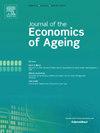长期护理保险对中国老年人脆弱性的直接和溢出效应
IF 2
3区 经济学
Q2 DEMOGRAPHY
引用次数: 0
摘要
虚弱已成为老年人面临的一个紧迫的公共卫生问题。然而,长期护理保险(LTCI)覆盖范围在多大程度上可以减轻老年受益人的脆弱性仍未得到充分探讨。本研究利用2011-2018年中国健康与退休纵向研究(CHARLS)的数据和逐城推出的LTCI计划,考察了中国LTCI政策对老年受益人及其配偶的脆弱性的影响。我们的研究结果显示,在LTCI实施后三到五年内,老年受益人的虚弱程度有统计学上的显著降低。此外,这些积极影响还延伸到配偶身上,夫妻之间的脆弱指数下降就表明了这一点。值得注意的是,受益人及其配偶中居住在农村地区、受教育程度和消费水平较低的男性受益更为明显。脆弱性的减少主要归因于主观幸福感的增强和受益人经济压力的减轻,而不是长期护理服务利用率的提高。本文章由计算机程序翻译,如有差异,请以英文原文为准。
Direct and spillover effects of long-term care insurance on Chinese elderly frailty
Frailty has become a pressing public health concern within the elderly population. However, the extent to which long-term care insurance (LTCI) coverage can alleviate frailty among elderly beneficiaries is still insufficiently explored. Utilizing data from the 2011–2018 China Health and Retirement Longitudinal Study (CHARLS) and the city-by-city rollout of the LTCI program, this study examines the impact of China’s LTCI policy on the frailty of older beneficiaries and their spouses. Our findings reveal a statistically significant reduction in frailty among older beneficiaries three to five years after LTCI implementation. Moreover, these positive effects extend to spouses, as indicated by a decreased frailty index among them. Notably, the benefits are more pronounced among beneficiaries and spouses who are male, reside in rural areas, and have lower levels of education and consumption. The reduction in frailty is primarily attributed to enhanced subjective well-being and reduced financial strain among beneficiaries, rather than increased utilization of long-term care services.
求助全文
通过发布文献求助,成功后即可免费获取论文全文。
去求助
来源期刊

Journal of the Economics of Ageing
Multiple-
CiteScore
4.10
自引率
4.50%
发文量
46
审稿时长
49 days
期刊介绍:
The Journal of the Economics of Ageing (JEoA) is an international academic journal that publishes original theoretical and empirical research dealing with the interaction between demographic change and the economy. JEoA encompasses both microeconomic and macroeconomic perspectives and offers a platform for the discussion of topics including labour, health, and family economics, social security, income distribution, social mobility, immigration, productivity, structural change, economic growth and development. JEoA also solicits papers that have a policy focus.
 求助内容:
求助内容: 应助结果提醒方式:
应助结果提醒方式:


